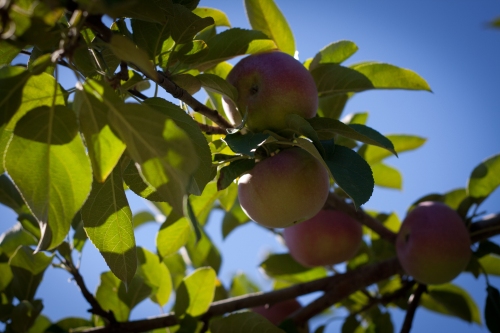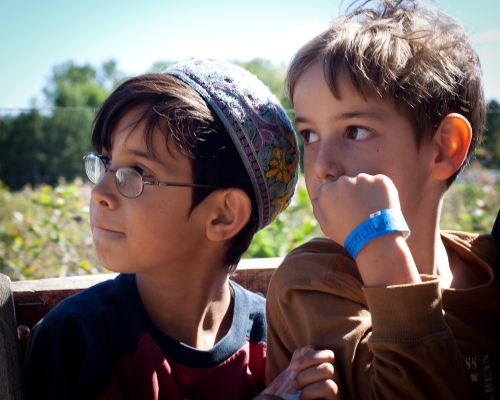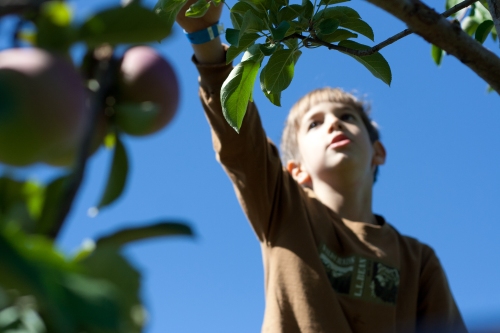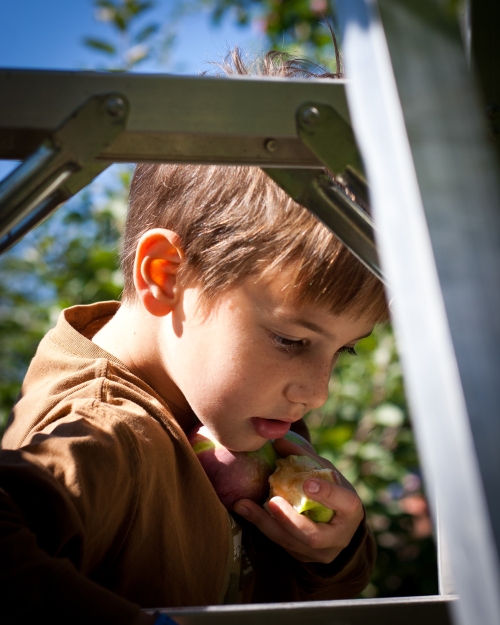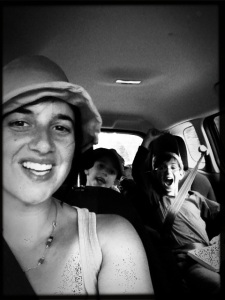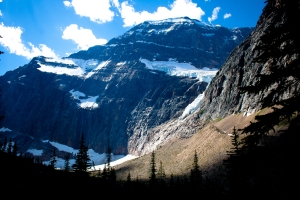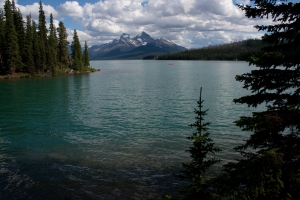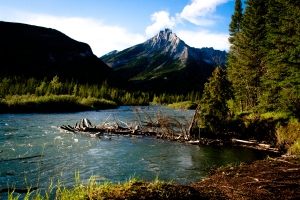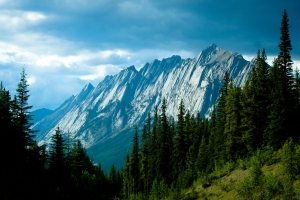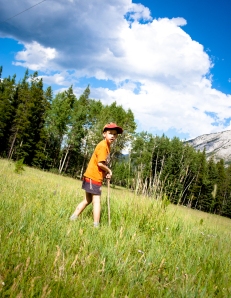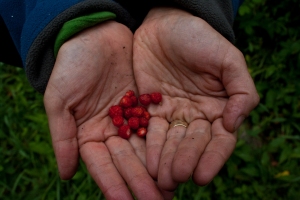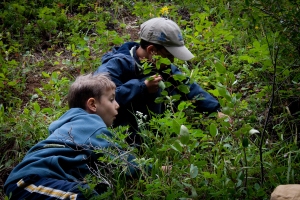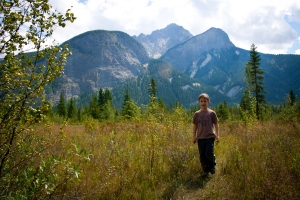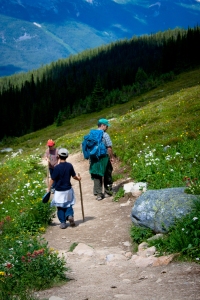thephilosophicalbrothel
Month: September, 2012
September 12, 2012
Spoiler Alert: The Nazis are Coming!
We were watching The Sound of Music last night, which has lost none of its power to captivate over the last fifty years, even though it clocks in at three hours and overuses a misty soft focus on every single close-up meant to evoke fantasy or desire (B. said, why does it look so blurry? Because desire is blurry, my love, at least in the cinematic conventions of 1965). We were almost at the end, after the Austrian pomp and shrieking organ music of the wedding, and I said, “Uh, oh, now the Nazis are coming.” “Spoiler alert!” L. said, “the Nazis are coming!”
Last year, on a spring evening that felt like winter, B. came home and asked me to help him with his homework. “I have to ask you a question,” he said, and I said, “Go ahead.” He was standing on the stairs, with a piece of pencil and a paper. He said, “I have to interview people in my family. If you had to leave the house in a hurry, and you could only take a few things with you, what would you take?” I looked at him hard. “Is this for the holocaust unit in your class?” I said. He sighed and looked back at me and said, “Are you going to talk disapprovingly about this to Abba tonight when you think I’m asleep?” He was starting to panic, because he is the kind of child who panics when there is some obstacle in between him and a teacher’s demands. “All right,” I said. “Money. Passports. You boys. Warm clothes. A couple of pictures.” “The iPad,” L. said, and I said, yes, I’d take the iPad. I was starting to warm up to the list, despite myself; it wasn’t like I’d never considered the question before. L. had a similar list, except that he wanted to take his lego, but just between you and me there’s no way he’s taking his lego. That would only slow us down as we hiked the mountain passes between Austria and Switzerland.
Aren’t they too young? When L. was born a friend gave us a children’s book–a picture book, beautifully designed. The book was about a baby thrown out the window of a train during a transport to a Nazi death camp. The baby is found and saved by a local woman, and lives to survive the war and tell her story. There it is, on the tenth page, the baby swaddled in pink in a black and white world, flying out the window of the cattle car to the deserted road beside the tracks. I hid that book. I didn’t want to give it away because I didn’t want it to end up in the hands of some other child. That is not a story for children. How soon do we want to give our children nightmares? Beckett said, we can’t escape the past because the past has deformed us, or has been deformed by us. I can’t pretend to know what to do about this. The book is still stashed in my closet.
The morning after his homework assignment B. looked pale and worried. He’d had a nightmare about pursuit. I wrote to his teacher and said: do you realize your curriculum is giving nightmares to nine year old children? She wrote back to me right away–in fact, she must have written to me from school–and she said she’d talk to the children again that day. When I picked B. up to go home, he was radiant. “Guess what?” he said. “Other children are having nightmares too!” He was so happy, I mean, it made him feel so much less alone.
September 3, 2012
Road Trip
I took August off, like the therapists. We went West. God, the effortful good cheer of road trips. Come on kids, get in the car!
We drove for hours up terrifying roads to obscure places and when we arrived we always found parking lots full of cars and Chinese grandmothers with big hats and dark sunglasses. If my pictures were honest, there would be a crowd of people in half of them, elbowing each other out of the way for an uninterrupted view of the personal sublime.
On the Icefields Parkway, signs hectored us with a polite mantra: “When you approach or feed an animal, you are taking away its wildness, and that is the most precious thing about it.” I was stuck on that phrase–what was the quality of wildness, that you could capture it? Why was wildness described as a most precious possession? If it was something you had, was it also something that could be taken away? Addled, antifreeze-addicted bighorn sheep nuzzled our car–come on, come on, man, just a lick, just a lick. We saw a bear cub ambling off the road, and tourists on the roadside jostled to take photographs. Majestic elk acted majestic. You are taking away my wildness.
Eleanor Roosevelt said scare yourself every day. J said, scare your mother every day. I was bred for caution, not for daring. Signs on the road warned us of all the ways we might die: avalanche, elk crossing, dangerous curves ahead. The trail was closed for “wolf activity.” We traveled in tight groups of four, and sang songs to keep the bears away. Tall rocks invited clambering, and small crevices invited broken ankles. We ate tiny wild strawberries that tasted of wine and earth.
We tricked the boys into a hike up the Cavell meadows. They talked about cards the entire time. As we left, we heard a sound like tearing, like thunder, like your own teeth grinding in your own skull, and as we looked back a piece of the glacier had sheared off and fallen. It only lasted as long as a held breath. B said, I’m going to tell that to my grandchildren. When we left the parks our eyes had to get used to the trash and clatter of billboards on ordinary highways. We had seen only beautiful things for so long.
The Athabasca glacier reminded me of a rhinoceros I once saw at the Bronx Zoo. He was massive, indifferent to our stares, and nearly immobile. Signs mark the land the glacier once held, and where it retreated it has left only barren and rocky moraine. We said we were on the glacier extinction tour. The crowfoot glacier has lost a claw. The angel glacier is losing a wing. The angel glacier is losing a wing. Do you need a clearer sign?

